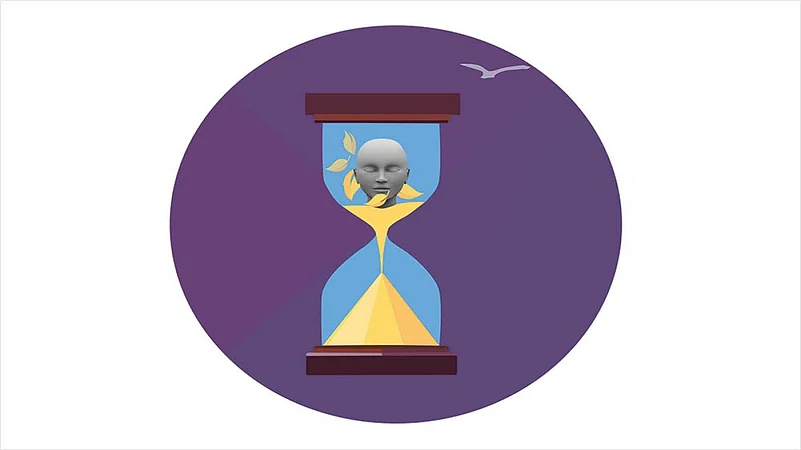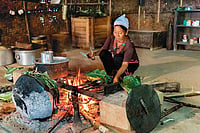I have often thought about death. Wrestled with it late into many sleepless nights. But never so intensely and deeply as I have during this pandemic. More so after the second wave that sliced through our lives like a knife in the flesh. It hit hard and real when people we knew just went away. One after the other. A young man I knew to be a healthy fellow, never regained consciousness after prolonged ICU treatment. A fit-for-their-age octogenarian couple—the man whom we called “uncle” was gleefully golfing when I saw last; his wife, “aunty” to many, was driving out in her car for a kitty party when I last exchanged greetings; a mother-son duo who succumbed to the virus one after the other in a span of 20 days. The list goes on. As India’s death count due to Covid soared, it brought home the vulnerability and fragility of life that we often took for granted.
I searched deep within the recess of my mind to question and understand what death really is. Is it the end of everything? Is it the end of a story that we so blissfully script here on earth? I turn to the Bible, for it is my first exposure and introduction to any philosophical work on this subject. In the biblical context, death is described as “sleep”, which means that one would get up from that slumber into the Christian belief of an “eternal life”. Scholars and philosophers have studied and dug deep to piece together the complexity, or rather, the simplicity of death.
Plato and Socrates whose theories once fueled my curious young mind, have a rather straightforward view. It is the “ultimate separation of the soul and body”. They regard the body as a prison for the soul and view death as the means of freedom for the soul. To philosophers, whose central world revolves around seeking wisdom and knowledge, the physical body is but an obstacle and a stumbling block. In that zealous quest for a higher purpose and meaning in life, the body becomes quite immaterial for them. Also, the need to look after the body comes with its share of many unwanted and avoidable distractions towards that journey and search for that knowledge. It is no surprise then that a true philosopher’s main goal is to be free of the body and its entanglements, to chase knowledge.
But death cannot always be propounded through philosophical views. In reality, it holds very little solace for those mourning the loss of loved ones. That makes it even harder to accept Socrates’s suggestion that death is like a dreamless sleep. And it is pertinent to ask what then happens to those who are awake and missing the person falling asleep. In that sense, isn’t death a little selfish? The real issue is not with death but with the bereaved, those who are left behind. Death yields pain to those who have to grieve and feel the vacuum in their lives.
Reflection on death made me question some bereaved friends with a sincere intention to know more. Just so it becomes clear what exactly and how profound the physical pain is. Like I often asked Ambika each time I met her during my morning walks. What is that pain? Does it linger on? Does the pain fester and eat a part of your heart? Time is a healer, she tells me. Not a day goes by not thinking or remembering her mother, she clarifies. What I gather is, the pain lessens with time. The dead are remembered for sure but with the passage of time, pain and grief can turn into something else. Into a powerful positive feeling, almost like a motivation to keep alive the legacy of those we love. They say, the heart no longer aches with pain but throbs to remember them in a different way, as if they are there in the heart where they live and dwell.
But even to get to that space is a journey in itself. In the end, it is imperative that I take refuge in the truth that we are only asleep and that we must rise again. Is that a consolation? I hope I have my answers.























